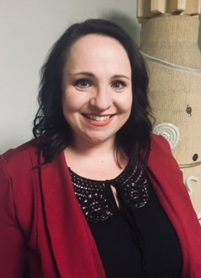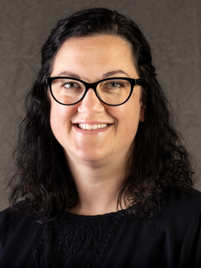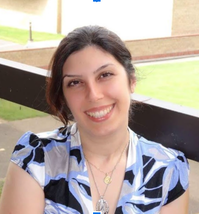Keynote Address: A Triangulated Approach to Language Advocacy and Quality Program Implementation Across Contexts
Ofelia Wade

The power of language to support students to be college, career and civic ready is undeniable! Therefore, we have a professional and moral responsibility to advocate for expanded access to quality language programs for ALL students! In the spirit of Ruth Bader Ginsburg’s wisdom, the power of languages is a cause worth fighting for, and leading others to join us.
Ofelia G. Wade serves as the Utah Spanish Dual Language Immersion Director. Her responsibilities include curriculum development, professional development for teachers, coaches and administrators, and recruitment of DLI teachers. Ms.Wade has a strong background in Sp. Education, K-6 regular education, K-9 DLI education, and is a 23-year veteran school administrator. She is the immediate Past-President of NCSSFL and current lecturer at the University of Utah.
Ofelia G. Wade serves as the Utah Spanish Dual Language Immersion Director. Her responsibilities include curriculum development, professional development for teachers, coaches and administrators, and recruitment of DLI teachers. Ms.Wade has a strong background in Sp. Education, K-6 regular education, K-9 DLI education, and is a 23-year veteran school administrator. She is the immediate Past-President of NCSSFL and current lecturer at the University of Utah.
Plenary Session: Educational Equity through Dual Language Programming
Katy Cattlett

The time to advocate for Dual Language in your community is NOW. Dual language programming is the only program model proven to close the long-term reading achievement gap for English Learners. Beyond this academic advantage, Dual Language programs provide students and communities the opportunity to improve home language skills which leads to improved social emotional states for students and families. As the experts in acquiring languages other than English in the state, we play an important role in advocating for students to not only retain their home languages but also provide equitable programming for English learners.
Katy Cattlett is the principal of Spring Lake Magnet, a Spanish/English Dual Language elementary school in Omaha. She has also served as the Omaha Public Schools curriculum specialist for World and Dual Languages. She is the president-elect of NILA.
Katy Cattlett is the principal of Spring Lake Magnet, a Spanish/English Dual Language elementary school in Omaha. She has also served as the Omaha Public Schools curriculum specialist for World and Dual Languages. She is the president-elect of NILA.
Plenary Session: Disrupting Evasion Pedagogies in the New Latinx Diaspora
Dr. Trish Gray

Since the early 1990s, communities in Nebraska have welcomed (and in some cases, not welcomed) increasing numbers of newcomers from Mexico and the Central American countries of Guatemala, El Salvador, and Honduras, making them a part of the New Latinx Diaspora (Hamann, Wortham, & Murillo, Jr., 2002). When schools in these communities are resistant to change in response to their newcomer students, they enact “evasion pedagogies” (Viesca & Gray, under review) by evading opportunities to disrupt inequity through the project of teaching and learning. What are the “scripts” of evasion pedagogies? How can we disrupt evasion pedagogies in the everyday practices of school?
Trish Gray is an Assistant Professor of Practice in the Department of Teaching, Learning, and Teacher Education at the University of Nebraska-Lincoln. She also taught all levels of secondary Spanish classes in a variety of school and community contexts, including team teaching social studies units in Spanish. Her forthcoming book, Learning to Hide: The English Learning Classroom as Sanctuary and Trap, is due out early next year.
Trish Gray is an Assistant Professor of Practice in the Department of Teaching, Learning, and Teacher Education at the University of Nebraska-Lincoln. She also taught all levels of secondary Spanish classes in a variety of school and community contexts, including team teaching social studies units in Spanish. Her forthcoming book, Learning to Hide: The English Learning Classroom as Sanctuary and Trap, is due out early next year.
Plenary Session: Dual Languages: Brain & Behavior
Dr. Ladan Ghazi Saidi

Thanks to neuroimaging, we now know how the brain learns a second language later in life and how the bilingual brain works. In this talk, I will review cognitive processes of learning a second language, and its implications in teaching. Further I will discuss some of the cognitive and behavioral impacts of speaking more than one language. The bilingual brain functions differently from the monolingual brain. These differences are not limited to language processing. This means that there are certain consequences in behavior. I will have an overview of some of these consequences.
Ladan Ghazi Saidi is an Assistant Professor at the Department of Communication Disorders, College of Education, University of Nebraska at Kearney (UNK). Prior to her current appointment, she was a Research Fellow at Cleveland Clinic, in Las Vegas, NV, which was a succession to three years of postdoctoral research at University of Montreal, Canada, where she also completed her PhD program. Her expertise is in neuro-cognition of language acquisition and bilingualism. She has also over 12 years of experience in teaching English as a second language to adolescents and young adults.
Ladan Ghazi Saidi is an Assistant Professor at the Department of Communication Disorders, College of Education, University of Nebraska at Kearney (UNK). Prior to her current appointment, she was a Research Fellow at Cleveland Clinic, in Las Vegas, NV, which was a succession to three years of postdoctoral research at University of Montreal, Canada, where she also completed her PhD program. Her expertise is in neuro-cognition of language acquisition and bilingualism. She has also over 12 years of experience in teaching English as a second language to adolescents and young adults.
